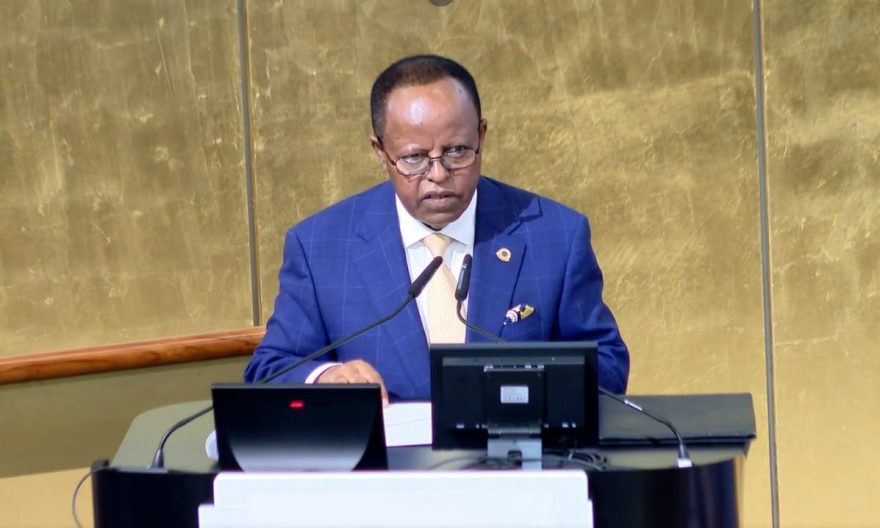
Food security has been a growing concern for Africa due to a variety of issues. Population growth is one factor. Africa has one of the world’s fastest-growing populations, which drives up food consumption. By 2050, the continent’s population is predicted to double, putting enormous strain on food production tasks.
Additional issues contributing to the problem of food security include climate change, recurring drought, economic difficulties, violence, and instability throughout the continent. Furthermore, a sizable section of the African populace makes their living from agriculture. According to data gathered from AU, more than 70% of Africa’s workforce works in agriculture. For example, more than 85 percent of Tanzanians work in agriculture. In 2023, 62.37% of Ethiopia’s workforce worked in agriculture. In 2022, agriculture employed 39.74% of Ghana’s workforce. These statistics show that agriculture is the primary economic activity for more than 70% of the continent’s poor, who reside in rural areas.
Agriculture is the backbone of Africa, despite its potential and sources of income for Africans, but it is not as developed as it could be. Here, the fundamental issue should be: what are the causes of Africa’s undeveloped agricultural sector? Another crucial subject that requires answers is what should be done in the agriculture sector to ensure food security?
Farmers in many African countries do not have access to modern farming techniques, technology, or inputs, which limits their production and productivity. As a result, tackling food security in Africa necessitates a holistic strategy that involves improving agricultural techniques, investing in infrastructure, boosting market access, and addressing the underlying socioeconomic challenges that contribute to food insecurity.
According to Ethiopian President Taye Atske-Selassie, Africa’s agri-food systems are undergoing transformational changes as a result of a complex interplay of economic, demographic, technical, environmental, and climate change factors. Hence, it is imperative to work on the following four critical factors that can alter the African agri-food system, supporting economic growth and improving livelihoods across the continent:
First, rapid urbanization: The impact of urbanization in Africa particularly the growing demand for freshly processed foods and ready-to-eat meals significantly reshapes consumption patterns in urban areas. This shift creates vital linkages between small-holder farmers and expanding domestic markets, driven by sustained economic growth and a growing middle class. Nonetheless, all people should know that Africa’s rapid population growth, and meeting the increasing demand for diverse and high-quality food products will present challenges.
Secondly, the huge potential of technological innovation such as digital agriculture, precision farming, and other advancements is pivotal to transforming Africa’s agrifood systems. These technologies can enhance productivity, improve efficiency, and increase access to information and markets for farmers. This indeed is attainable as Rwanda effectively employed Digital Soil Mapping and used drones to monitor crop health and assess damage from pests and diseases. Though few in number, African countries such as Egypt and Morocco have also improved the traceability of agricultural products, ensuring food safety and improving supply chain efficiency. Ethiopia’s collaboration with the African Development Bank brought forth climate-smart and heat-resistant wheat varieties; making the country as one of the leading wheat producers in Africa.
Thirdly, empowering women and engaging the youth will unlock the full potential of the sector as they are the drivers of innovation and resilience in our food systems. Angola and Uganda recognize the crucial role of women and the youth in transforming its agriculture, particularly in expanding access to resources, developing agribusiness incubators, and mentorship programs, and enhancing market linkages.
Fourth, fostering regional policies such as the African Continental Free Trade Area (AfCFTA) is essential for expanding market access, improving food security, and creating more resilient food systems across the continent. Ghana’s achievement in reducing poverty by half through agriculture by 2025 serves as an inspiring example of the transformative potential of improved food security. The full realization of the African Continental Free Trade Area promises to amplify the success of many African countries that are determined to be on track to building a resilient system of food security.
The outgoing Commissioner of Agriculture, Rural Development, Blue Economy and Sustainable Environment at the African Union Commission, Josefa Sacko said that since 2003, African heads of state and government have made agriculture a priority. Furthermore, the Maputo declaration focused on food security and agricultural investment, but after ten years, the continent continues to face challenges due to several gaps in implementing the declaration and ensuring food security.

“We saw that the continent still has the problem of implementing decisions of heads of state,” Josefa explained. “So, we had a lot of gaps in terms of implementing the Maputo Declaration. Considering these challenges, the African Union is concentrating more on food security and investing in agriculture.”
Currently, the AU prepares the 10-year (2026-2035) strategy that represents a more inclusive and equitable approach, developed through extensive consultations with regional bodies. “We really want this strategy an African-led strategy,” Josefa stated, expressing confidence that this African ownership will be crucial in ending hunger. She also stressed the importance of partnerships in implementing the plan.
Key pillars of the new strategy include intensifying sustainable food production, boosting agro-industrialization, opening markets to other African countries, and liberalizing the agricultural sector to attract investment. Josefa highlighted the urgency of these initiatives, noting that Africa’s population is projected to reach 2.5 billion within the next decade.
“The continent needs to really mobilize investment in this area so that it can transform the agriculture and food system transformation,” she asserted.
According to Josefa, addressing the lack of value chains in the current food production system is critical. Enabling farmers to access markets will help satisfy the still-unmet food demand.
Former Prime Minister of Niger and AU Special Envoy on Food Safety Ibrahim Hassane Mayaki underscored the need for Africa to move beyond simply producing food. He emphasized the importance of Pan-Africanism in addressing economic and food security issues.
“This strategic plan is substantial to industrialize and enhance agricultural productivity,” Mayaki stated. “The industrialization of this continent will come from agri-food production.”
Indeed, food security has received increased international attention because of its consequences for African stability, health, and development. Global efforts seek to address these concerns through agricultural alliances and investments. Hence, tackling food security in Africa involves a holistic approach that includes improving agricultural methods, investing in infrastructure, increasing market access, and tackling the underlying socioeconomic factors that contribute to food insecurity. More significantly, Africans should collaborate with the spirit of Pan-Africanism to implement and achieve the 10-year (2026-2035) strategy, which is critical to maintaining food security across the continent.
BY EPHREM ANDARGACHEW
THE ETHIOPIAN HERALD TUESDAY 18 FEBRUARY




